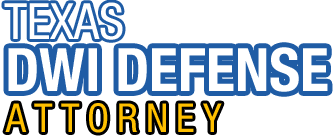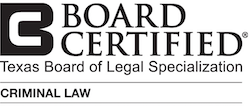Avoid a DWI Conviction Checklist
5 Important Tips to Help Avoid a DWI Conviction
1. Do not blow into the Intoxilyzer 5000:
Simply put...you have the right to refuse taking a breath test. The Intoxilyzer 5000 is a highly outdated machine, and utilizes many variables and assumptions that differ in every individual. The investigating officer may threaten to obtain a blood search warrant if you do not consent to give a chemical specimen. Avoid playing their game and REFUSE! If they do end up obtaining a blood search warrant, we can attack it in court. Often it is too cumbersome for an officer to go through all the trouble that properly obtaining a search warrant requires. And even if they do, In may ways, a chemical blood specimen relating to DWI arrests can lead to more false-positive results than even breath tests do!
2. Do not agree to try and perform any of the Standard Field Sobriety Tests (SFST's):
Do not attempt to perform any of the physical tests if asked at the scene where you are stopped, and/or at the station after you are arrested. You can refuse. These tests, simply put, are designed for failure. The citizen who finds themselves in the position of being asked to perform these physical "monkey" tests - usually are only requested to do so to help gather and obtain evidence by the investigating police officer.
3. Don't lean against the car, or anything else:
It is important to remember that every little thing you do that may be construed as signs of intoxication (even whey are not) will be used against you in Court. In the same fashion, say as little as possible, and try to remain calm. Many everyday and common symptoms NOT related to intoxication can mimic the effects one may exhibit that will significantly hurt your case. Sleeping, or being tired and/or exhausted, can very much mimic the symptoms of being intoxicated. An arresting officer cannot know the difference when pulling an individual over, at night, in the dark, with very little information to utilize when making the decision to arrest. SO CHOOSE TO REFUSE!
4. Don't say anything (or as little as you possibly can):
The arresting officer will try to coax you into saying possible incriminating statements, such as this common question that can be quite damaging later at court, "On a scale of 1 to 10, 1 being the lowest and 10 being the highest, can you rate your scale of intoxication right now?" It is a natural response to give a number. IT IS IMPERATIVE THAT YOU DO NOT! If this question is posed to you, simply say "ZERO" and that you are not intoxicated - and are baffled by why they would even ask that question in the first place. Always remember that any and all of your statements against can and most likely will be used against you in Court. Even very common statements will try to be construed against you in Court. Often, individuals are nervous. Having the "jitters" can also very much mimic the symptoms of intoxication. Considering this, say as little as you possibly can. Common mistakes that many individuals say include making statements such as, "Officer, I couldn't even do those tests if I were sober." While the context of this statement likely means that the individual is just stating how difficult the tests are to properly perform even under the most optimal circumstances - it will almost assuredly be used against you in Court. Therefore, SAY AS LITTLE AS POSSIBLE!
5. Speak clearly and be polite:
Always remember that any and all of your statements against can and most likely will be used against you in Court. Even very common statements will try to be construed against you in Court. Often, individuals are nervous. Having the "jitters" can also very much mimic the symptoms of intoxication. Considering this, say as little as you possibly can. Common mistakes that many individuals say include making statements such as, "Officer, I couldn't even do those tests if I were sober." While the context of this statement likely means that the individual is just stating how difficult the tests are to properly perform even under the most optimal circumstances - it will almost assuredly be used against you in Court. Therefore, SAY AS LITTLE AS POSSIBLE!
Below is a very simple list of basic "Do's" and "Dont's if you find your position of being pulled over and you are under suspicion of Driving While Intoxicated: The following list is NOT conclusive, but do provide a helpful guideline of things you SHOULD and SHOULD NOT DO when pulled over and are under suspicion of DWI:
► DO...
- Pull over onto the left shoulder, come to a complete stop, turn off your motor vehicle, role down your window and place your hands on the wheel where law enforcement can see them;
- Provide the law enforcement officer immediately, and have it ready before they get to your window, with your driver's license, registration and insurance information;
- Ask to speak to an attorney immediately, and especially if they ask you to step from your vehicle (even though in Texas they are not required to do so at this point);
- Politely refuse any questions law enforcement may ask, you have the legal right to remain silent (see above).
- Refused to the taking of any chemical test. If one is taken and a search warrant is obtained, request to have an independent blood test, urine test or breath test taken by a unbiased person. In Texas, Section 724.019 of the Transportation Code (additional analysis by request) does provide for this, and it is your statutory right - though very few are aware of this.
► DO NOT...
- Argue with or attempt to bribe any law enforcement officer;
- Take any of the Standardized Field Sobriety Tests (SFST's);
- Agree to the taking of a PBT (Portable Breath Test);
- Sign any documents except for what you are absolutely required to (which in reality is not much, you are not even required to sign the DIC-24 paperwork which asks if you consent, or refuse, to the taking of a chemical specimen;
- Implicate yourself in any way;
- Do not fall asleep in the police car on the way to the station.
Contact The Law Offices of Carl David Ceder Now
You can contact The Law Offices of Carl David Ceder at anytime for assistance at 214.702.CARL(2275) or at 469.2000.DWI(394). You can also e-mail Carl directly, at Carl@CederLaw.com; or to the office for general inquiries at Info@DFWDefenders.com. Phones should be answered 24 hours a day/7 days a week for immediate and prompt assistance. E-mail messages will try to be responded to with 24-48 hours, depending on whether Carl and his team is in trial and/or is busy working on a case for a contested hearing.




















